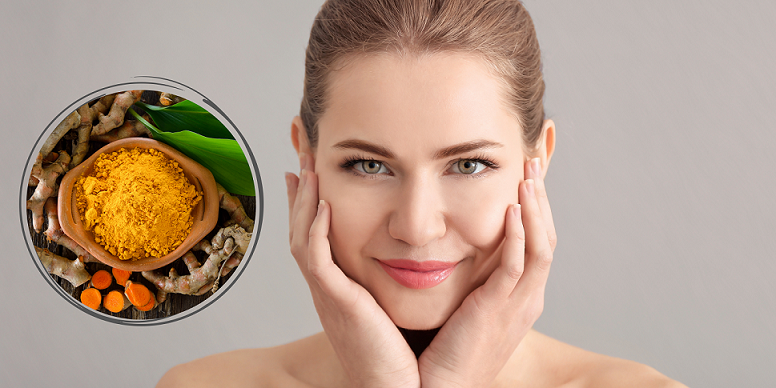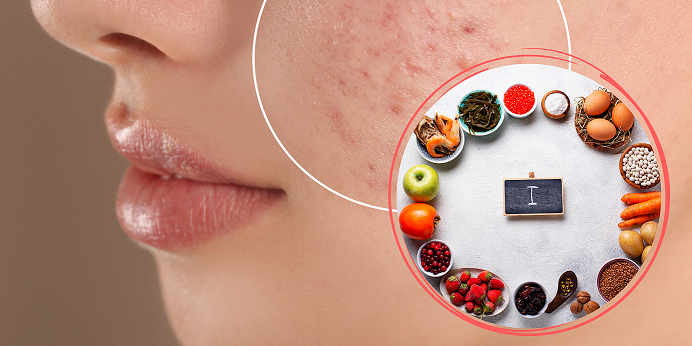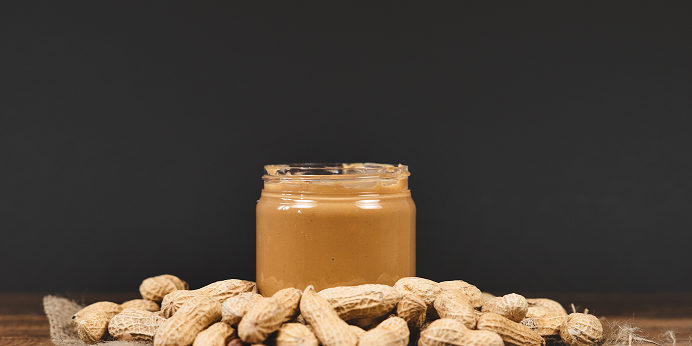
Unveiling the Golden Secret: Why I Swear by Turmeric in As Part of My Skin Health
In a world inundated with skincare products promising miracles, sometimes the most potent solutions are rooted in nature. One such golden ingredient that has become a staple in my skincare routine is turmeric. Its vibrant hue and earthy aroma might remind you of exotic cuisines, but the benefits it offers to the skin are nothing short of remarkable. I consume turmeric in my diet and also use it topically to boost collagen production, reduce acne breakouts and inflammation and for its antioxidant benefits.
Join me on a journey exploring why turmeric has earned its place as a skincare superhero for myself and my loyal clients, and how you can incorporate it into your routine for a radiant, healthy glow.

Spices, Herbs, and Food
Health Benefits of Turmeric
Turmeric, with its dynamic compound curcumin, has become my go-to for wellness. Its vibrant color and therapeutic abilities, from reducing inflammation to promoting joint health, have left a positive mark. I've experienced its natural anti-depressant qualities and noticed benefits in weight management and immune support. Whether in teas, curries, supplements, or face masks, turmeric's adaptability suits my lifestyle. But a reminder: consulting with a healthcare professional is crucial for a safe integration.
The Benefits Of Turmeric For Skinx
Turmeric isn't just a spice; it's my skincare powerhouse. Its potent anti-inflammatory properties calm my skin, fighting redness and irritation. With natural antibacterial qualities, it's my go-to for treating acne and controlling oil, keeping breakouts at bay. The antioxidant punch tackles fine lines and wrinkles, adding an anti-aging boost.
Turmeric's brightening magic fades dark spots, promoting an even skin tone. Its moisturizing touch strikes the perfect balance for all skin types. Incorporating turmeric into my routine has unlocked these benefits, giving me healthier, luminous skin – my everyday beauty essential.

Me with my esti bestie, Sarah Kinsler from by Kin Aesthetics
Does the type of turmeric you use matter?
Choosing the right type of turmeric is essential for optimal benefits. The curcumin content, responsible for its therapeutic properties, varies, with higher levels indicating greater potency. Quality matters, so opt for organic, high-quality turmeric from reputable sources.
The form—fresh, powdered, or supplements—affects concentration, with bioavailability boosted by combining turmeric with black pepper or fats. Consider flavor and color variations among turmeric varieties, and prioritize freshness for optimal results in culinary or skincare applications. Always consult with a healthcare professional, especially with supplements, to ensure a safe integration into your routine, particularly if you have existing health conditions or are on medication.
Adds Natural Glow To Your Skin
Juice Recipe for Inflammation - The Internal Boost
Skincare goes beyond what I apply externally; it's also about nourishing my body from within.
I sprained my ankle playing kickball a few months ago. Yes, I played in an adult league. I was getting frustrated when my ankle wouldn't heal. It was chronically swollen. I opened my supplement cabinet in my kitchen and found an expired "golden milk" container that is made from turmeric. I thought I should start using turmeric again because I know the benefits are plentiful.
You know how the internet knows what you're thinking? When I realized I needed to start adding turmeric back into my life, an Instagram post showed up about the benefits of fresh turmeric juice. So, I've since added a healthful addition to my routine – an anti-inflammatory juice that features the golden gem of turmeric. Alongside tasty ingredients like ginger, lemons, and oranges, this recipe adds a boost to my skincare journey, making well-being a part of my daily ritual. It also helps with headaches and PMS symptoms too! I even give it to my family and friends when they aren't feeling well.

Liz holding a kickball trophy.
Ingredients:
- 8 Oz Fresh Turmeric root
- 8 Oz Fresh Ginger root
- 2 Lemons
- 2 Oranges
- 2 pinches of fresh ground pepper

lemon, water, refreshment
Directions: Juice all the ingredients together and freeze the mixture into ice cubes for convenient use.
Preparation from Frozen Cubes: Place a cube in a mug and add 1-2 oz of hot water. Drink the concoction once the frozen cube has melted, creating a soothing and refreshing beverage.

Frozen Cubes of fresh turmeric juice
Why It Matters:
Turmeric's Anti-Inflammatory Power: Renowned for its anti-inflammatory properties, turmeric benefits the skin from the inside out, managing various skin issues.
- Ginger's Digestive Aid: Ginger supports digestion, a vital factor for radiant skin and toxin elimination.
- Citrus Boosts Collagen: Lemons and oranges, rich in vitamin C, aid collagen synthesis, reducing wrinkles and maintaining skin elasticity.
- Pepper Enhances Absorption: A pinch of fresh ground pepper boosts turmeric's absorption, maximizing its anti-inflammatory benefits for healthier skin.
Recipe Note: A Natural Alternative to Pain Relievers:
This juice isn't just a delight for your taste buds; it's a natural, delicious alternative to over-the-counter pain relievers, equivalent to 1200 mg of Tylenol. Integrating it into your routine enhances skin well-being and offers a holistic approach to managing inflammation. Consult with a healthcare professional before dietary changes, especially if you have existing health conditions or are on medication.
How Turmeric Helps Your Skin
Turmeric, with its curcumin punch, is my go-to skincare gem. It soothes redness and fights acne, reducing scarring and hyperpigmentation for smoother skin. Packed with antioxidants, it battles fine lines, brightens my complexion, and even tackles eczema. As a natural exfoliant, it regulates oil and moisturizes. Turmeric, in my skincare routine, is the shortcut to achieving luminous and healthy skin effortlessly.
Helps treat psoriasis and eczema
Turmeric's anti-inflammatory and antiseptic properties make it beneficial in treating skin conditions such as psoriasis and eczema. When applied topically or consumed, turmeric can help soothe irritated skin, reduce redness, and alleviate discomfort associated with these conditions.
Its natural healing properties contribute to the overall management of psoriasis and eczema, providing relief to those experiencing these skin challenges. Always consult with a healthcare professional for personalized advice and treatment plans.
Moisturizes Dry Skin
Turmeric serves as a natural moisturizer for dry skin. Its hydrating properties help alleviate dryness, restoring moisture and leaving the skin feeling supple. Whether applied topically or consumed, turmeric contributes to maintaining skin hydration, making it a beneficial addition to skincare routines for individuals dealing with dry skin concerns.

Toner, Skin, and Skincare
Turmeric Face Masks - Unleashing the Radiance
I decided to add a turmeric face mask to our line of products as another option for some clients to reduce inflammation in their skin. If you enjoy the experience of at-home facials, check out our SAFFRON TURMERIC MASQUE to see if it's a good fit for you. It can be used alone or after a gentle exfoliating treatment for a lovely treatment.
Turmeric Powder:
- Convenience: Turmeric powder is convenient and easy to use, making it a popular choice for culinary purposes and DIY face masks.
- Long Shelf Life: It has a longer shelf life than raw turmeric root, making it a practical option for those who may not use it regularly.
- Versatility: Turmeric powder is versatile and easily incorporated into various recipes, offering a consistent flavor and color.
Raw Turmeric Root:
- Higher Curcumin Content: Raw turmeric root tends to have a higher curcumin content, the active compound responsible for many health benefits, compared to powder.
- Freshness: Raw turmeric root provides a fresher flavor and potentially more potent health benefits due to minimal processing.
- Whole Food Benefits: Some people prefer using the whole root for its potential additional nutrients and fiber than processed powder.
Considerations:
Cooking vs. Skincare: For culinary purposes, turmeric powder is often more practical. However, if you're using turmeric for skincare applications or want to maximize potential health benefits, using raw turmeric root might be preferred.
- Availability: The availability of each form may vary based on your location and local markets. Turmeric powder is generally more widely available.
Turmeric powder and raw turmeric root both have their merits. Turmeric powder is convenient and versatile, while raw turmeric root may offer higher curcumin content and a fresher experience. The choice depends on your intended use and personal preferences.

Indian spices, Free background, and Spices
Conclusion
Turmeric, a golden gem rooted in nature, emerges as a skincare superhero with versatile benefits. From promoting overall health to addressing diverse skin concerns, turmeric's journey from kitchen spice to skincare staple is marked by simplicity and effectiveness. If you are suffering from chronic inflammation like cystic acne or internal pain, consider adding turmeric to your life. I personally use it and recommend it to all my acne clients who are on my acne coaching programs.
FAQ's
Which skin type is turmeric best for?
Turmeric accommodates various skin types, offering advantages like maintaining a natural glow for normal skin, controlling excess oil for oily skin, and providing moisture for dry skin. Its versatility extends to combination skin, but those with sensitivity should patch-test.
For aging skin, turmeric's antioxidants combat fine lines. While generally versatile, it's essential to exercise caution and seek professional advice for specific skin conditions.
What does turmeric do for your skin?
Turmeric, powered by curcumin, is a skincare superhero. It calms inflammation, battles acne, and fades dark spots with its antioxidant-rich and antibacterial properties.
How Long Should You Leave Turmeric On My Face?
When using turmeric in face masks, it's generally recommended to leave it on for about 10 to 15 minutes. This duration allows the active compounds, especially curcumin, to work on the skin without overexposure.
Leaving turmeric on for too long may result in staining, especially if it contains a high concentration of turmeric powder. I've tested my Saffron Turmeric Mask on tons of clients and have yet to see any staining of the skin. If you have sensitive skin, you might want to start with a shorter duration, such as 5 to 10 minutes, to see how your skin reacts.
Always perform a patch test before applying turmeric to your face to check for any adverse reactions, and consult with a dermatologist or esthetician if you have concerns about how turmeric might interact with your specific skin type or conditions.
Does Turmeric Lighten Your Skin?
Turmeric is known for its skin-brightening properties, which can contribute to a more radiant complexion. It may help fade dark spots, hyperpigmentation, and even out skin tone. However, it's important to note that turmeric is not a skin-lightening agent in the sense of altering one's natural skin color.
Instead, it works to reduce the appearance of uneven pigmentation and promotes a more luminous and even skin tone. As with any skincare ingredient, individual responses may vary, and consistent use over time is typically required to see noticeable effects.
Always perform a patch test before using turmeric extensively, and if you have concerns about your skin or specific skin conditions, consult with a dermatologist or esthetician for personalized advice.
How Long Does Turmeric Take To Lighten Skin?
Turmeric's skin-brightening effects are gradual, and the time it takes to lighten the skin varies among individuals. Consistent use over weeks or months with daily application of turmeric-infused products, along with sun protection, may lead to a more even and radiant complexion. However, individual responses depend on factors like skin type and the severity of pigmentation issues.



